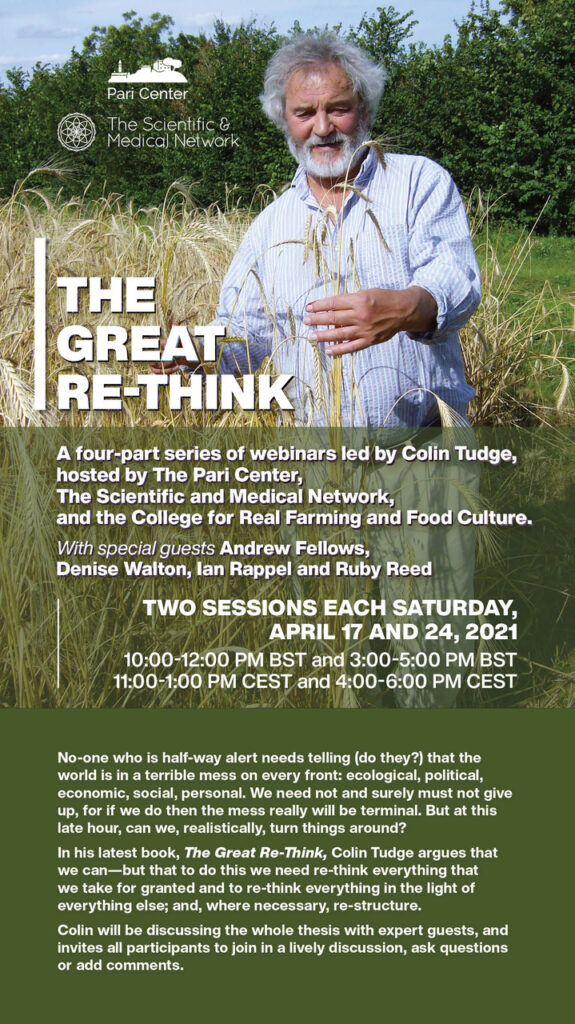Your cart is currently empty!

Infrastructure – The Great Re-Think
- This event has passed.
April 24, 2021 @ 11:00 am – 1:00 pm CEST
Infrastructure
Session 3 – The Great Re-Think
with Colin Tudge and special guest Ian Rappel
Saturday April 24
10:00am BST | 11:00am CEST
All sessions are live, recordings will be available for any sessions you can not attend.
Enlightened agriculture (with corresponding cuisine)—and the grand cause of conviviality, personal fulfilment, and a flourishing biosphere—cannot come about without an appropriate, supportive infrastructure—compounded of the government, the economy, and the law. The economy is ‘the matrix of our lives.’ It is in practice the medium through which we translate our aspirations into material reality. So it is vital to have the right aspirations—and to devise an economy that really does help us to meet our needs and fulfil our dreams (insofar as our dreams are compatible with the bedrock principles of morality and ecological reality).
The economy that now prevails worldwide—that of neoliberalism—is the precise opposite of what’s needed. It is inveterately materialist (money is its only ‘value’); it idealises competition which leads to inequality and strife; it promotes excess which must lead to mass extinction; and ‘the market,’ which has no morality, becomes the moral arbiter.
Instead we need Green Economic Democracy: the ‘tripartite mixed economy’ (public, private, and community ownership, with all financial endeavours conceived as social enterprises). Governments are not going to make this happen so we, people at large, must do what needs doing despite them. We surely have the power to do so, if we choose to grasp the nettles.
We must make democracy work—difficult but necessary—and those we elect to government must follow the guidelines that Jesus suggested according to St Mark (10: 42-44): ‘whoever would be first among you must be servant to all.’
The scope for discussion is clearly endless. What are the implications of all this for humanity as a whole and for the political parties in particular? How significant are the many uprisings worldwide? (the US, Hong Kong, Russia, Belarus, Myanmar, India? What can they achieve?) And so on.

Ian Rappel is a geographer and ecologist by background, working in conservation for NGOs and in academia since 1993. He is currently helping with the development of the College for Real Farming and Food Culture, and also works as the Wales Development Manager for the National Association of AONBs. He is a curriculum advisor to the Black Mountains College, and lives in Talgarth on the northern fringes of the Black Mountains in Wales.

